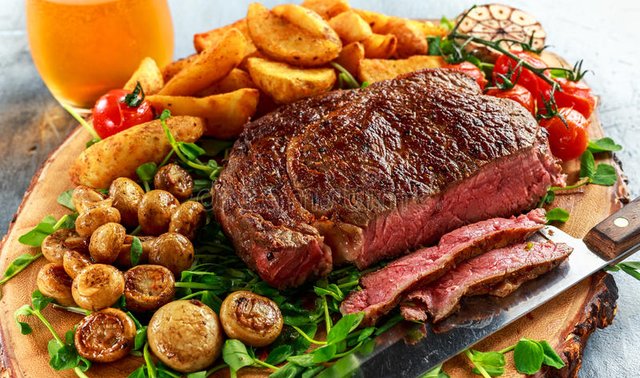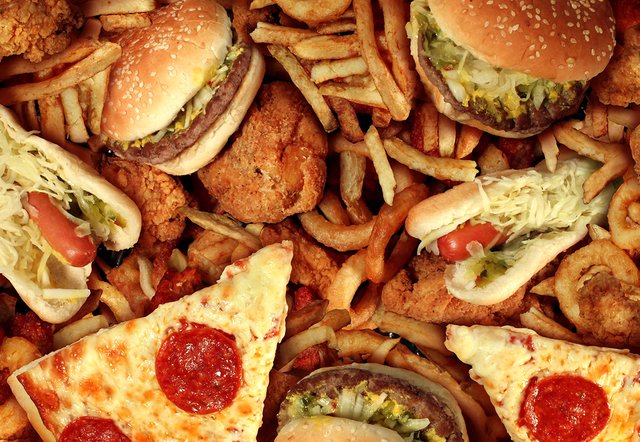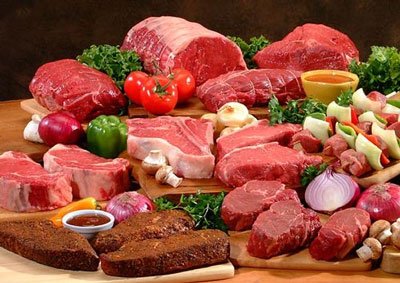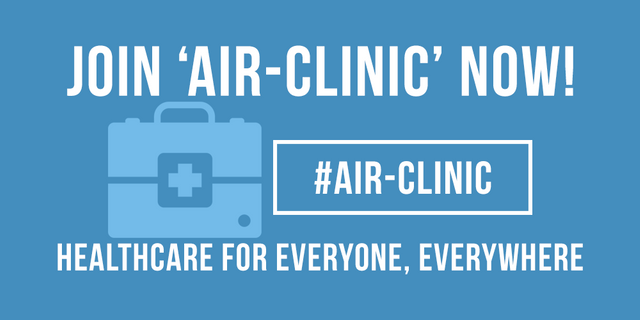RED MEAT IS CARCINOGENIC (ABILITY TO CAUSE CANCER)
There is a strong relationship, well documented and well established, between the consumption of animal products and many types of cancer. A comprehensive nutritional study involving more than half a million people concluded that those who eat large amounts of meat, especially red and processed meat, face a significantly higher risk of cancer.
According to the *World Health Organization *(WHO), processed meat is a carcinogen and red meat is "probably carcinogenic." Before you think that this is alternative science or a new theory, keep in mind that the Society American Cancer recommends limiting the consumption of red and processed meat and other sources of high-fat protein, including chicken.
The risk of cancer from a diet high in animal protein (more than 20% of total calories) is now considered to be on par with smoking. As expected, a diet high in vegetable protein shows no such effect. This could be because plant-based protein does not stimulate growth hormones, such as IGF-1 (insulin-like growth factor), as animal protein does.
 credit
credit
IGF-1 IN MEAT ASSISTS IN TUMOR GROWTH
IGF-1 is a growth factor that promotes cell division in the body, which is a very good thing if it is a growing child. In adults, however, excess IGF-1 in the body can encourage the growth of tumors. The higher the levels of this hormone, the greater the risk of developing several types of cancer. IGF-1 helps transform normal cells into cancer cells by inhibiting normal cell death and stimulating cell division. These corroded cells metastasize to other areas of the body.
Of course, there are other factors that stimulate cancer in the body. Methionine, an amino acid found mainly in animal products, promotes the growth of tumors and cancer. However, it is not only animal protein that raises the risk of cancer.
SATURATED FAT INCREASES THE RISK OF CANCER
Consumption of saturated fats from animal sources contributes to several common types of cancer and decreases the likelihood of surviving a cancer diagnosis. Pancreatic, prostate, breast and colorectal cancers show the strongest correlation with the consumption of saturated fats.

credit
SATURATED FAT is found in dairy products and red meat increases the risk of developing pancreatic cancer.A diet high in saturated fats from foods such as meat and cheese is linked to aggressive prostate cancer. The risk of breast cancer and its mortality increase with red meat and the consumption of dairy products. Survival rates drop significantly with a high intake of saturated fats after a diagnosis of breast cancer. Alarmingly, the consumption of products of animal origin in adolescence seems to predict years of risk of breast cancer before the development of cancer and its diagnosis.Up to 50% of all cases of colorectal cancer can be attributed to diet and lifestyle, specifically the consumption of dietary fat, red and processed meat, and dairy products. In fact, greater consumption of products of animal origin before diagnosis predicts an increased risk of dying from this type of cancer.
PEDIATRIC FLESH AND CANCER
What the mother eats during pregnancy can increase or decrease the risk of the child developing some types of childhood cancer. Genetic changes related to cancer can begin in the uterus.
ACUTE LYMPHOBLASTIC LEUKEMIA (ALL) is, at the same time, the second most common type of childhood cancer and the second most common cause of mortality in children under 14 years of age. The risk of developing ALL is linked to the habits of maternal smoking and the type of protein that the mother consumed while her child was in the womb. The consumption of proteins of vegetable origin such as beans, vegetables and fruits during pregnancy seems to reduce the risk of children developing this disease.
Brain tumors, which account for 20% of childhood cancer cases, are linked to the mother's diet during pregnancy. In particular, the consumption of cured meat and sausages seems to significantly increase the risk of brain tumors. The consumption of dairy products or eggs during pregnancy also increases the risk of the child developing brain tumors. Conversely, a diet high in grains, fresh fish, cruciferous and yellow-orange vegetables reduces the risk of developing brain tumors.
LIFESTYLE IS KEY TO PREVENTION
Many complex and interconnected factors, such as genetics, the environment, exposure to hazardous materials and diet, determine your risk of cancer. Genetics plays an important role but, unfortunately, there is nothing that any of us can do about the genes with which we are born. Nutrition, however, is something that most of us can control. The best thing you can do to reduce your risk of cancer is to follow a raw, organic, and vegan diet.
If you can not become fully vegan, you should, at least, reduce your consumption of meat and dairy products. Carrying out small steps is an effective way to bring about change. Start by completely avoiding the meat one day a week. After a month of "Monday without meat," add a "Fruit Friday" or a "Salad Sunday" to the mix. Continue in this manner until you are comfortable with a diet primarily based on plants.
Being a vegan does not guarantee that you will never develop cancer, but it is a strategy that can help reduce risk.
**QUESTIONS AND ANSWERS ON RED MEAT AND CANCER **
What is red meat?
Red meat refers to all types of meat derived from mammalian muscle tissue such as beef, veal, pork, lamb, sheep, horse and goat.
*What is processed meat?
Processed meat products (or processed meat) refers to meat that has been processed by salting, maturing, fermenting, smoking, or other processes used to enhance its flavor or enhance its preservation. Most processed meats contain pork or beef, but may also contain other red meats, poultry, offal or meat by-products such as blood.
Examples of processed meats include hot dogs (sausages), ham, sausages, corned beef, dried beef strips, and canned meats and preparations. meat sauces.
*Do meat cooking methods change the risk?
High temperature cooking methods generate compounds that may contribute to the carcinogenic risk, but their role is not yet fully understood.
*What are the safest methods for cooking meat (eg in a pan, gruel, roast or barbecued)?
Cooking at high temperatures or with food in direct contact with a flame or hot surface, such as in barbecue or pan cooking, produces more carcinogenic chemicals (such as polycyclic aromatic hydrocarbons and heterocyclic aromatic amines).
*The consumption of red meat has been classified as probably carcinogenic to humans What does that mean?
In the case of red meat, this classification is based on limited evidence from epidemiological studies showing positive associations between the consumption of red meat and the development of colorectal cancer, indications supported by strong mechanistic indications. .
Limited indications mean that a positive association has been observed between exposure to red meat consumption and cancer but that other explanations for these observations (technically referred to as chance , bias or confounding ) could not be excluded.
*Is there a type of red meat that would be safer?
Some studies have looked at cancer risks associated with different types of red meat, such as beef and pork, and different types of processed meats, such as ham and hot dogs. However, there is not enough information to say whether consumption of any type of red meat or processed meat would be associated with a higher or lower risk of cancer.
The consumption of processed meat has been classified as carcinogenic to humans, What does that mean?
This category is used when there is sufficient evidence of carcinogenicity in humans. In other words, there is convincing evidence that the agent causes cancer in humans. This assessment is generally based on epidemiological studies showing the development of cancer in exposed individuals.
In the case of processed meat, this classification is based on sufficient evidence from epidemiological studies that the consumption of processed meat causes colorectal cancer in humans.
*Processed meat has been classified as carcinogenic to humans (Group 1). Tobacco use and asbestos are also classified as carcinogenic to humans (Group 1). Does this mean that consuming processed meat is as carcinogenic as smoking tobacco and being exposed to asbestos?
No, processed meat has been classified in the same category as other cancer-causing agents, such as smoking and asbestos (IARC Group 1, carcinogenic to humans), but this does not mean that they are all so dangerous. IARC classifications describe the strength of scientific data on an agent as a cause of cancer, but do not assess the level of risk.
What types of cancers are linked to or associated with the consumption of red meat?
The strongest, albeit still limited, evidence of an association with red meat consumption is **colorectal cancer. **There is also evidence of links to pancreatic cancer and prostate cancer.
Should we stop eating meat?
Meat consumption has recognized health benefits. That said, many national health recommendations advise individuals to limit their consumption of processed meat and red meat, which is linked to increased risks of death from heart disease, diabetes and other diseases.
*How many cases of cancer each year can be attributed to the consumption of processed meat and red meat?
According to the most recent estimates of the Global Burden of Disease (GBD) Project , an independent academic research organization, around 34,000 cancer deaths per year worldwide are attributable to a diet rich in processed meats.
The consumption of red meat has not yet been established as a cause of cancer. However, if the causality of reported associations was proven, the GBD project estimated that diets rich in red meat could be responsible for 50,000 cancer deaths per year worldwide.
These figures contrast with about 1 million cancer deaths per year globally attributable to tobacco use, 600,000 to alcohol consumption, and over 200,000 to air pollution.
*Can you quantify the risk associated with the consumption of red meat and processed meat?
Consumption of processed meat was associated with a slight increase in cancer risk in the studies reviewed. In these studies, the risk usually increases with the amount of meat consumed. An analysis of data from 10 studies calculated that each 50-gram serving of processed meat consumed daily increases the risk of colorectal cancer by approximately 18%.
The risk of cancer associated with the consumption of red meat is harder to estimate because indications that red meat causes cancer are not as strong. However, while the causality of reported associations between red meat consumption and colorectal cancer was proven, data from the same studies suggest that the risk of colorectal cancer could increase by 17% for every 100 grams of red meat consumed by day.
*What makes red meat and processed meat increase the risk of cancer?
Meat is made up of multiple components, such as heme iron, for example. The meat may also contain chemical compounds that form during the processing or cooking of the meat. For example, carcinogenic chemical compounds such as N-nitroso compounds and polycyclic aromatic hydrocarbons (PAHs) are formed during meat processing.
The cooking of red meat or processed meat also produces heterocyclic aromatic amines as well as other chemical compounds, including PAHs, which are found in other foods and in air pollution. Some of these chemicals are known or suspected carcinogens, but even so, it is unclear how red meat and processed meat increase the risk of cancer.
*Can you compare the risk of eating red meat and the risk of eating processed meat?
Comparable risks were estimated for a standard portion, which is a smaller portion on average for processed meat than for red meat. However, the consumption of red meat has not been recognized as a cause of cancer.
*Should we eat only poultry and fish?
The cancer risks associated with the consumption of poultry and fish have not been assessed.
*Should you become a vegetarian?
Vegetarian diets and meat diets have different health benefits and disadvantages. However, this assessment did not directly compare health risks for vegetarians with those who consume meat. This type of comparison is difficult to make because these groups may be different in other ways than their meat consumption.
Can the mode of storage influence the risk (eg salting)?
Different modes of preservation can lead to the formation of carcinogens (such as N-nitroso compounds), but it is not clear if this can contribute to cancer risk, and to what extent.



But they said redmeat was best now...
Even chicken is not safe anymore.
Lol.. Life is evolving
Interesting article. So informative
Thank you
Wow! Good info.
Thanks, stick on for more health and discovery posts
Good post. No matter how well advertised, I won't stop eating meat cuz its my own nutrient addiction
Lol
👍
Looks like nothing to eat!! I love chicken! I love mutton!!! I love beef !!!!
Difficult time ahead :)
By the way, Really wonderful post, no doubt. It covers all the aspect of it, though difficult to follow in real life. Maybe were are chewing hot dog while reading this article :P #air-clinic #air-curie
Lol, yeah, very difficult @hafiz34
Wooow can't believe that we all have been using our money to kill ourselves gradually through eating of red meats and the likes. I'm so happy I came across this post. Thanks so much @stevendion for the eye opening, I hope fish has no danger our health?
@fastfingers loves you, steem on.
.gif)
#Huge-Challenge
#Air-Clinic
You may want to join us on discord via https://discord.gg/rqded5m

Thanks @fastfingers but i am also a member of air-clinic ... Cheers
tweeting this well researched article
Thanks so much @sayee
You won't believe it if I tell you that red meat 🍖 is still one of the best, the media is just trying to play with our mind, everything created by God is good.
Thanks @botefarm , I believe everything is good but i still believe too much of everything is bad.. Yes we can eat meat but we shouldn't do that everyday of our lives
@stevendion, thanks for this eye opener, I have received lecture concerning this before and this also came handy when needed, this type of topic is very important because meat is the main source of human protein in this part of the world.. I'm happy to know that fish is still safe..
I want you to tell me about rabbit meat.. Thanks in advance.. @tuppence
#hug-challenge
#air-clinic
https://discord.gg/rqded5m